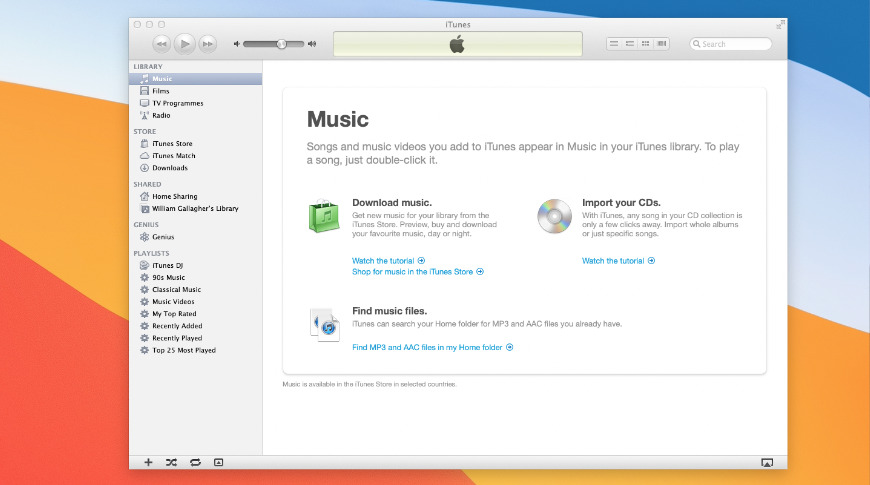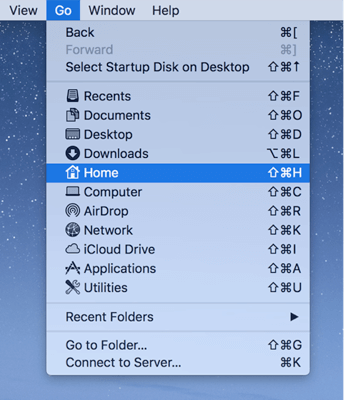There are so many reasons why people need to find out location of their saved playlist. Sometimes people lost their phone and when they buy new one, they need those songs back again. There are so many people who face these types of issues.
ITunes forever changed the way people experienced music and podcasts. It all changes again with two all-new, dedicated apps — Music and Apple Podcasts — each designed from the ground up to be the best way to enjoy entertainment on your Mac.
Part 1: Why We Want to find iTunes Playlist Location?
- Mac If you are on a Mac, you simply need to go to the Finder and from the menu at the top of your screen, select “Go” - Home - Music - iTunes. Following these steps will take you directly to where your iTunes library stored and give you access to all the files stored within.
- These are the essentials you need for a complete foundation of iTunes features and functions. Whether you use a Mac or Windows PC, you need to know how to install iTunes, create an account and Apple ID, authorize computers, learn what files iTunes can use, and understand the importance of deauthorizing a computer.
- The media files contain imported songs, downloaded stuff and purchased items from iTunes. You can also find individual folders containing songs and movies etc. Here is the complete address of iTunes library on windows: C: Users username My Music iTunes. 2 Where Is iTunes Library on Mac. Oppositely, if you are on a Mac, follow the process below.
- How to find iTunes. If you're using a Mac, you've almost certainly got iTunes already, it's likely there will be an icon that looks like a musical note in your Dock at the bottom of your screen.
Can't Find Itunes On Mac
Sometimes people need to find out their playlist and the reason to find out these playlist is crashing of computer or losing of phone etc. I am going to discuss a case with you here with solution, whose computer is crashed and this person lost everything from their computer.
'I lost all of my files and libraries and music. After try my best to rescue them ,the problem is all of my playlists that I've spent years tweaking, I don't want to lose them! I'm wondering where the file is within iTunes so that I can recover it.'
How To Find Itunes On Mac Air
Now in this case, he needs to know where these playlists are saved, so he can easily recover it. If this person don't know about the saved location of playlist then this person cannot recover his music libraries again.
Part 2: Where is the iTunes Playlist Location?
Usually iTunes doesn’t store any playlist on any computer. Your library will contain all details about playlists. Just for example when you export iTunes library and import later, your playlists will also imported too.
If you want to find out playlist location in itunes, the trick is:
Copy folder of iTunes from the backup folder in the original location, to ‘spoil’ the library.itl file
When you do it that time you will lose few album covers but no need to worry about it. You can regain it from: File > Library > Get Album Artwork.
You have “spoiled” itl file by doing this.
Now you have to remove previous .itl file from the location: Music/iTunes/iTunes Library.itl
Now to create this file again you have to visit and enter this location:
~/Music/iTunes/iTunes/Library.itl
It will rebuild empty .itl file.
After following these all above steps double click on iTunes icon and launch it. When you launch it then it will notice that something is wrong there and then it will start rebuilding the itl file by using previous xml file. A message on screen will come with name “importing iTunes music library.xml”
After some time this import will restore your old structure.

Part 3: How to Backup Playlist to iTunes
Transferring music from idevice to other place or computer is really a very challenging job. If you want to do it without using iTunes then it possible with Wondershare Tunesgo easily without any problem which another can’t do it. This software is available for you to transfer data of iPhone or any iDevice to any other place. This software is available for mac and windows both which allows you to photos, videos and manages all music libraries of your iTunes. Tunesgo is compatible with iPhone 6s Plus, iOS9, windows 10 and all other iOS versions.
Key features:

How to backup data to itunes
If you are looking to back up your iphone data to computer or itunes then first of all please visit the below url and download and install it on your computer or mac.
After installing connect your iphone with computer and run tunesgo. Launch TunesGo and connect your iPhone with computer.
Click 'Music' on the top. Then you will find some playlists on the left column. Select the playlist which you want to transfer to iTunes, then click 'Export to iTunes'.
There is another way if you want to transfer you files to iTunes, that is by rebuilding your iTunes. You need to click ToolBox first, then click 'Rebuild iTunes Librarry'.select the files which you want to export to PC. After selecting your file just click on the “Export to” button. It will automatically start exporting of your files either computer or itunes anywhere you want.
Then hit 'Start' to go on the process.
select the files which you want to export to PC. After check your file just click on the “Start” button. It will automatically start exporting of your files either computer or itunes anywhere you want.
If your computer doesn't recognize your connected device, you might see an unknown error or a '0xE' error. If you do, follow these steps and try to connect your device again after each step:
- Make sure that your iOS or iPadOS device is unlocked and on the Home screen.
- Check that you have the latest software on your Mac or Windows PC. If you're using iTunes, make sure you have the latest version.
- Make sure that your device is turned on.
- If you see a Trust this Computer alert, unlock your device and tap Trust.
- Unplug all USB accessories from your computer except for your device. Try each USB port to see if one works. Then try a different Apple USB cable.*
- Restart your computer.
- Restart your device:
- Try connecting your device to another computer. If you have the same issue on another computer, contact Apple Support.
For more help, follow the steps below for your Mac or Windows PC.
* Learn how to connect iPad Pro (11-inch) or iPad Pro 12.9-inch (3rd generation) to your computer.
If you use a Mac
- Connect your iOS or iPadOS device and make sure that it's unlocked and on the Home screen.
- On your Mac, hold down the Option key, click the Apple menu, and choose System Information or System Report.
- From the list on the left, select USB.
- If you see your iPhone, iPad, or iPod under USB Device Tree, get the latest macOS or install the latest updates. If you don't see your device or still need help, contact Apple Support.
If you use a Windows PC
The steps differ depending on if you downloaded iTunes from the Microsoft Store or from Apple.
If you downloaded iTunes from the Microsoft Store
Follow these steps to reinstall the Apple Mobile Device USB driver:
- Disconnect your device from your computer.
- Unlock your iOS or iPadOS device and go to the Home screen. Then reconnect your device. If iTunes opens, close it.
- Click and hold (or right-click) the Start button, then choose Device Manager.
- Locate and expand the Portable Devices section.
- Look for your connected device (such as Apple iPhone), then right-click on the device name and choose Update driver.
- Select 'Search automatically for updated driver software.'
- After the software installs, go to Settings > Update & Security > Windows Update and verify that no other updates are available.
- Open iTunes.
If you downloaded iTunes from Apple
Follow these steps to reinstall the Apple Mobile Device USB driver:
- Disconnect your device from your computer.
- Unlock your iOS or iPadOS device and go to the Home screen. Then reconnect your device. If iTunes opens, close it.
- Press the Windows and R key on your keyboard to open the Run command.
- In the Run window, enter:
%ProgramFiles%Common FilesAppleMobile Device SupportDrivers - Click OK.
- Right-click on the
usbaapl64.inforusbaapl.inffile and choose Install.
You might see other files that start withusbaapl64orusbaapl. Make sure to install the file that ends in .inf. If you’re not sure which file to install, right-click a blank area in the File Explorer Window, click View, then click Details to find the correct file type. You want to install the Setup Information file. - Disconnect your device from your computer, then restart your computer.
- Reconnect your device and open iTunes.
If your device still isn't recognized
Check Device Manager to see if the Apple Mobile Device USB driver is installed. Follow these steps to open Device Manager:
- Press the Windows and R key on your keyboard to open the Run command.
- In the Run window, enter
devmgmt.msc, then click OK. Device Manager should open. - Locate and expand the Universal Serial Bus controllers section.
- Look for the Apple Mobile Device USB driver.
If you don't see the Apple Mobile Device USB Driver or you see Unknown Device:
- Connect your device to your computer with a different USB cable.
- Connect your device to a different computer. If you have the same issue on another computer, contact Apple Support.
If you see the Apple Mobile Device USB driver with an error symbol:
If you see , , or next to the Apple Mobile Device USB driver, follow these steps:
- Restart the Apple Mobile Device Service.
- Check for and resolve issues with third-party security software, then restart your computer.
- Try to install the
usbaapl64.inforusbaapl.inffile again.
